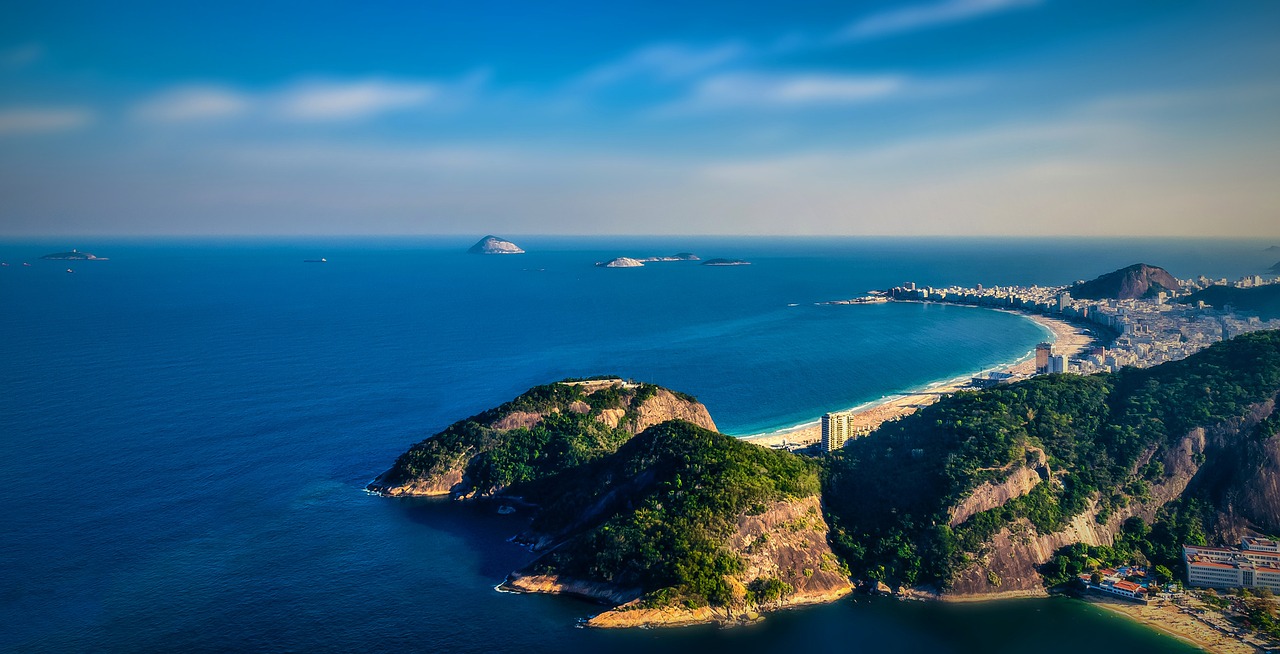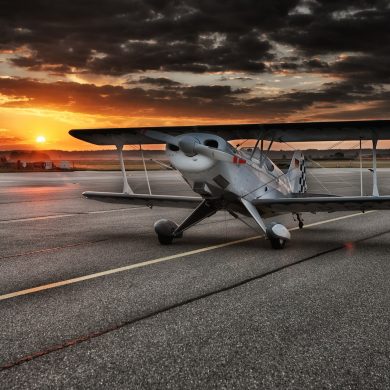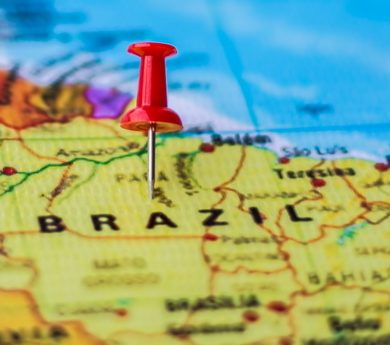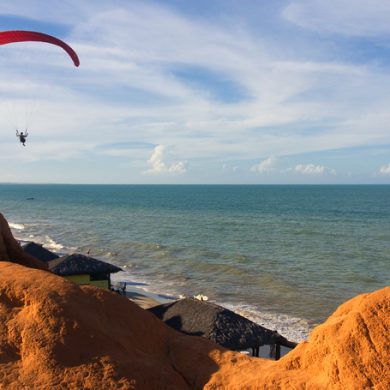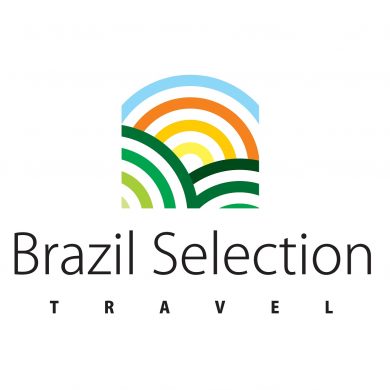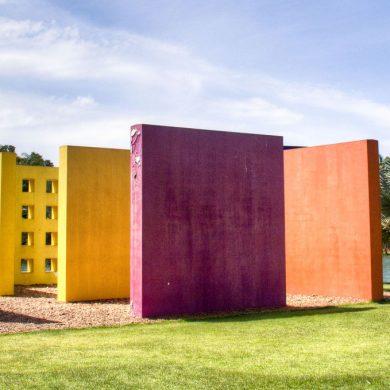This travel guide for Brazil provides essential information and practical advice to make your preparation and time in Brazil as smooth and enjoyable as can be.
Click to jump to section :
1) Police and Emergency Services
Police and Emergency Services
Should you need the Police or Emergency Services in Brazil the numbers are as follows:
Ambulance – 192
Police – 190
Fire Service – 193
For more information, and non – emergency cases, you can consult our page on police and emergency services in Brazil. It covers each of the emergency services that operate throughout the country, what their jobs are and how they are structured.
Passports & Visas
The immigration policy in Brazil operates through the system of reciprocity. This means that Brazil will apply the same immigration policies to visitors, as Brazilians would face visiting your country. However, there are many exceptions to this rule, have a look at our page with up to date details on Passports and Visas for Brazil to check the process for your country. A passport valid for more than 6 months (after your return date) is needed for all travelers. Remember to check yours!
Money and Payments in Brazil
Brazil has a modern and efficient banking system in all capital cities, so you can easily use your credit card and withdraw cash when arriving at the airport or in the vicinity of your hotel. It is worth asking your bank which Brazilian banks it is partners with.
The system here is slightly different; you can only withdraw money from cash machines in the banks or at the “Banco 24hr” machines. You won’t be able to withdraw money in any bank branch but your own.
If you have chosen to visit more out of the way places, such as the small seaside villages of the Northeast, you won’t find any cash machines and the small businesses only accept cash. It is therefore wise to take out cash before going exploring so as not to be caught off guard.
The currency in Brazil is the “Real.” For detailed information on the Real, including value, history and denominations – see our page on Brazilian currency.
It is advised to bring some Dollars so you can change them in an exchange office. You can also order a few hundred Brazilian “reals” before your trip, to bring along just in case!
Language
The official language in Brazil is Portuguese and it’s definitely worth learning a few words. Even if not to use in conversation, it will show you are making an effort to communicate and will really be appreciated by the locals. Your gestures and enthusiasm should do the rest! In the southern hotels, you will find people speak English and in the North, less so.
Useful words and phrases :
Hi! Oi
Good morning Bom dia
Good afternoon Boa tarde
Good evening (from 18:00) Boa noite
Goodbye Tchau
Please Por favor
Thank you (Muito) obrigado [for a male]
(Muito) obrigada [for a female]
Yes Sim
No Não
Excuse-me Com licença
I’m sorry Desculpe
Is everything fine? Tudo bem ?
Everything is fine Tudo bom
I (don’t) speak Portuguese Eu (não) falo Português
I (don’t) understand Eu (não) entendo
How do you say it in Portuguese? Como você fala em português ?
What’s your name? Qual é seu nome ?
My name is… Meu nome é…
I’d like to go to … Eu quero ir para…
What time does it … leave/arrive? A que horas… sai/chega ?
If you want to learn more about the Portuguese language in Brazil and the other languages that existed before the arrival of the Portuguese colonizers, check our guide on the language spoken in Brazil. It covers everything from its history, influences and the different dialects that exist throughout the country.
Vaccines for traveling to Brazil
It is very important to check you have had your regular and recommended vaccines for traveling to Brazil. There are some tropical illnesses present in Brazil which may not be in your country. Follow our handy guidelines for Vaccines required for traveling to Brazil, for more information on which vaaccines are required for travelling here, and how to avoid tropical illnesses while you are here.
Personal Safety
Usually only the big cities and their outskirts that cause problems with crime in Brazil. If you respect the basic rules and use your common sense, you don’t need to worry : leave your jewelry at home, leave your valuables (passport and money) in the hotel safe and avoid taking photos with a visibly expensive camera when not accompanied by a guide.
Only carry a credit card on you to pay at restaurants and shops in the big towns as well as some change for taxis and small things you may want to buy. When you go to the beach (in the big towns), only take essentials so as not to attract pick pocketers. For these occasions a small waterproof bag is very useful. You can also send us photocopies of your passports by email which could be useful if you lose them. For more information on keeping safe while traveling in Brazil, see our health and safety in Brazil page.
Clothing and Luggage
Brazil is a vast country therefore temperatures vary. During the European winter, Brazil has warm weather from North to South, apart from isolated storms in the south where a water-proof jacket could be useful, otherwise nothing special is needed.
However, for the months of July and August the temperature can get down to 10 or 15°C in the south (Rio & Iguaçu) and even as far north as Salvador where it can be 18°C and raining. If you plan on traveling to these regions at this time of the year, a light jumper or jacket and a raincoat such as a Mac or Paclite should cover most situations.
If you are not visiting southern Brazil during this season, the best clothes are light cotton shorts, bermudas, T-shirts and shirts. Don’t forget a hat or cap and sunglasses. Long sleeves and trousers are better in the evenings. A cardigan in your hand luggage could be good for evenings on the beach or on a flight (air conditioning in the airplanes can be cold especially in the central cabin area).
See our detailed guide on what to pack for a trip to Brazil.
Brazilian Norms – Eating, Transport and Tipping
In general, Brazilian food is delicious, plain and copious, with lots of beef and grilled fish. The modern looking restaurants are well equipped with quality kitchens and regular hygene inspections. The Brazilians are very professional when it comes to gastronomy so don’t be afraid to eat salads or sea food. However, do be careful of street vendors, always ask for sealed bottles that they open in front of you.
The main food attraction is obviously the churrascaria : a restaurant that serves the best grilled meat, accompanied by a buffet. Very plentiful portions and multiple options satisfy meat lovers as well as others. Try the popular Rodizio option (careful the desert cart is not always included).
Most restaurants add 10% tips to the final bill and it is advised to verify your final bill before paying.
It is very easy to take taxis in Brazil and the drivers are often very friendly. If you do not speak the language, it is best to inquire about the price of the trip at the front desk of your hotel and negotiate the price before you start.
Uber is also available in all the big Brazilian cities, it’s quite cheap but most of the cars are small and basic.
Have a look at our guide to Brazilian norms and everyday Brazil for travelers.
Brazilian Standards
GMT/UTC – 3hrs (in Brasilia). Watch out for the time difference between summer and winter, (only the Northeast doesn’t change time from October to March) and the 3 different time zones within Brazil (including the island of Fernando de Noronha). From April to October, the time is the same from the South to the North but you lose an hour when visiting Noronha and you gain an hour when going from Manaus to Pantanal.
The Metric system is used in Brazil. Distances are calculated in metres and weight is measured in Kilos.
Important : The electric current is not standardized and can vary between 110V and 220V. Bring a transformer and check before connecting your electrical devices! It is also better to have an adapter that allows you to connect your devices to jacks, most of the Brazilian sockets in hotels being type C.
To call Brazil: (+ 55) + area code + 8 digit number (for cell phones, sometimes you have to add the new code, the 9 if it is not already shown). Ex (55) 85 9 8864 5877
• To call a foreign country from Brazil, you must dial: 00 + the operator code + the country code + the phone number without the 0. Example from Brazil to the USA : 00 21 1 – area code and number
00 is the number that gets you out of the country
21 is the operator code
1 corresponds to the country code
• Another cheaper and more convenient solution is Skype, which you can install on your smart phone, buy credit and be able to call anywhere in the world, as soon as you have wifi.
• Finally, with WhatsApp, you can now send messages of multimedia content and even call for free, anywhere in the world, just register your number before departure and use the wifi in hotels.
See our full guide to Brazilian standards, phone calling, weights and measures.
Doing Business in Brazil
The business culture in Brazil may be different to what you are used to in your own country. If you are traveling for work, it is important to know how the workplace in Brazil functions and how staff act towards their peers. We have put together a detailed guide on doing business in Brazil which covers hierarchy, business culture and group dynamics as well as the economic and political considerations you should be aware of before doing business here.
